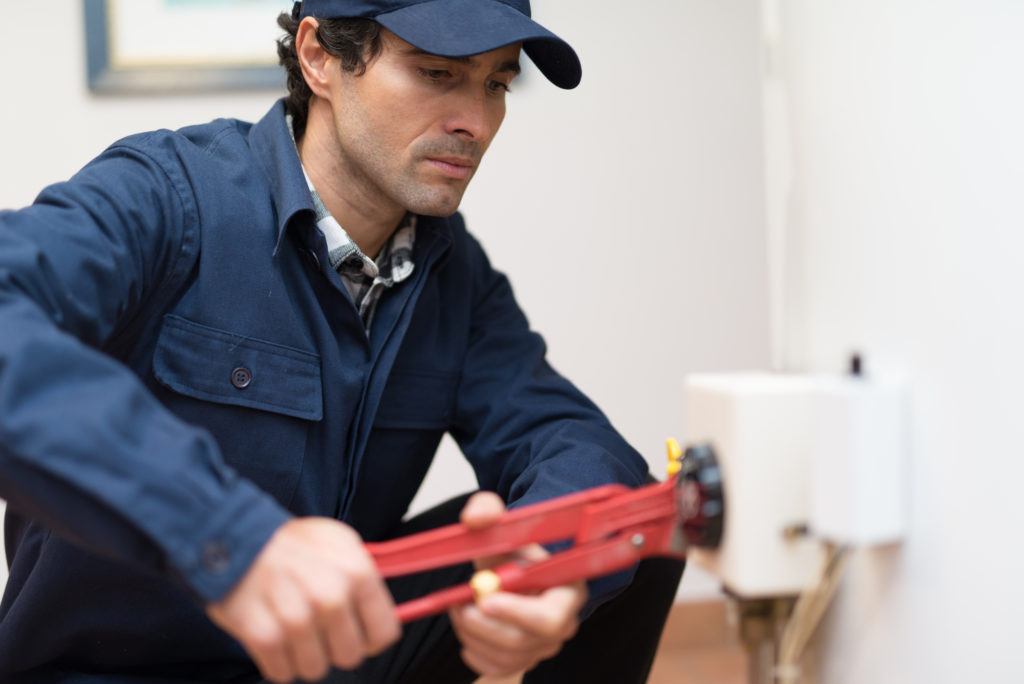Typical Water Heater Complications And Solutions
Typical Water Heater Complications And Solutions
Blog Article
We have discovered this article about Water Heaters Problems down the page on the web and concluded it made good sense to relate it with you here.

Think of starting your day without your routine warm shower. That currently sets an inadequate tone for the remainder of your day.
Every home needs a trustworthy water heater, yet just a few understand just how to handle one. One easy means to maintain your water heater in top form is to look for mistakes regularly and repair them as soon as they appear.
Keep in mind to turn off your water heater before smelling about for faults. These are the hot water heater faults you are probably to encounter.
Water too hot or also cold
Every water heater has a thermostat that identifies how hot the water gets. If the water entering into your residence is also hot regardless of establishing a practical optimum temperature level, your thermostat may be malfunctioning.
On the other hand, too cold water may be due to a fallen short thermostat, a busted circuit, or incorrect gas flow. As an example, if you use a gas hot water heater with a broken pilot light, you would obtain cold water, even if the thermostat remains in best condition. For electrical heaters, a blown fuse might be the perpetrator.
Not nearly enough hot water
Water heaters come in lots of dimensions, depending upon your warm water needs. If you run out of hot water before every person has had a bath, your hot water heater is too tiny for your family size. You ought to consider setting up a larger water heater tank or selecting a tankless water heater, which uses up much less area and also is a lot more durable.
Strange sounds
There are at least five type of sounds you can learn through a hot water heater, however the most usual interpretation is that it's time for the hot water heater to retire.
First off, you should recognize with the typical sounds a hot water heater makes. An electrical heating unit might sound various from a gas-powered one.
Popping or banging sounds normally imply there is a piece of sediment in your storage tanks, and also it's time to cleanse it out. On the other hand, whistling or hissing audios might simply be your shutoffs letting some pressure off.
Water leaks
Leakages could come from pipes, water connections, valves, or in the worst-case scenario, the container itself. Over time, water will wear away the tank, and also find its escape. If this occurs, you need to replace your hot water heater immediately.
Nevertheless, before your modification your entire storage tank, make sure that all pipes remain in area which each shutoff functions completely. If you still need help identifying a leakage, call your plumber.
Rust-colored water
Rust-colored water means among your hot water heater components is corroded. Maybe the anode rod, or the container itself. Your plumber will certainly have the ability to recognize which it is.
Warm water
Regardless of just how high you set the thermostat, you won't get any type of warm water out of a heating unit well past its prime. A water heater's performance may reduce with time.
You will certainly likewise obtain lukewarm water if your pipes have a cross link. This implies that when you switch on a tap, warm water from the heater flows in alongside routine, cold water. A cross connection is very easy to area. If your hot water taps still follow shutting the water heater shutoffs, you have a cross connection.
Discoloured Water
Rust is a major source of unclean or discoloured water. Deterioration within the water storage tank or a falling short anode rod might create this discolouration. The anode pole shields the container from rusting on the inside as well as ought to be examined yearly. Without a pole or an appropriately operating anode rod, the hot water promptly corrodes inside the container. Call an expert water heater specialist to establish if changing the anode rod will certainly repair the issue; otherwise, change your hot water heater.
Final thought
Ideally, your hot water heater can last 10 years prior to you need a change. Nonetheless, after the 10-year mark, you may experience any of these faults more routinely. Now, you must add a brand-new water heater to your budget.
How To Troubleshoot 3 Common Water Heater Problems in Twin Cities
The Water Heater Is Leaking
A leaky cold water inlet valve A loose pipe fitting A leaky temperature and pressure relief valve A corroded anode rod A cracked tank Turn Off Your Water Heater:
Shut off your gas water heater by turning the gas valve on the unit to the “OFF” position. Shut off your electric water by switching its power off at your electrical panel. Look for a two-pole breaker labeled “water heater” and turn it to the “OFF” position. Move the ball valve connected to the water heater to be perpendicular to the piping at a 90° angle. Look for the Leak:
Depending on whether the water is coming from the tank's top or bottom, you’ll want to look for the leak in different locations.
If the leak comes from the top of the tank, carefully look for water escaping from the cold water inlet valve or loose pipe fittings. Rusted hot and cold water valves can have loose connections with the tank, with water leaking out of them.
https://mspplumbingheatingair.com/blog/how-to-troubleshoot-3-common-water-heater-problems
As a passionate person who reads on Common Problems with Your Home Water Heater, I figured sharing that piece of content was essential. Sharing is caring. Helping people is fun. Thanks a lot for your time. Kindly check up our site back soon.
Visit Url Report this page